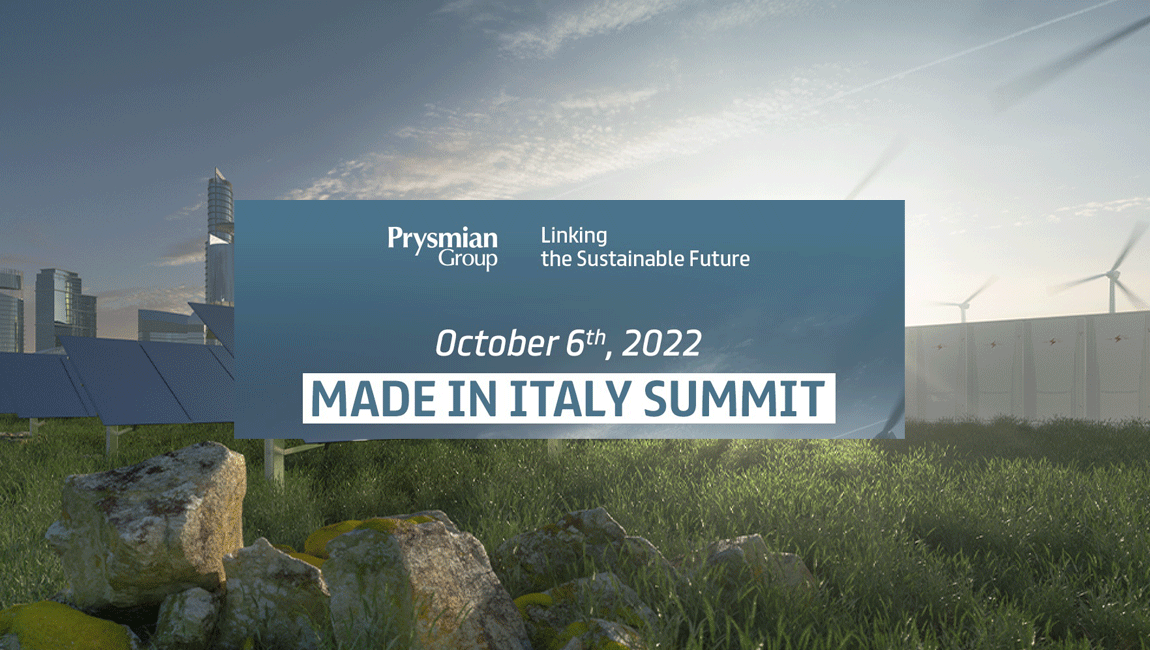In an increasingly challenging geopolitical and macro scenario, the Italian market needs to blend digital transformation strategies and sustainability goals to drive innovation and resilience. This is the pillar on which the three-day Summit organized by Il Sole 24 Ore, in partnership with the Financial Times, was based. It featured Maria Cristina Bifulco, Chief Sustainability Officer and Investor Relations Vice President Prysmian Group, and Massimo Battaini, Chief Operating Officer Prysmian Group, who discussed scenarios and current business strategies to drive innovation and resilience from a digital growth and sustainable practices point of view, as they are essential to address the complex international pandemic and geopolitical crisis. The event has become an influential moment of high-profile gathering and discussion between the most influential representatives of the institutional sphere and that of the main Italian excellences: a real workshop of ideas and projects providing a guide to navigate until the end of 2023.
Maria Cristina Bifulco and Massimo Battaini attended the Made in Italy Summit to talk about Italian excellence

Indeed, at present, the macroeconomic framework surrounding Italy is severely complex and unstable and the last few years have been marked by disruptive events, such as the pandemic and the war in Ukraine, which have totally upset the global and national equilibrium. In early 2022, there was hope that the rebound of the manufacturing industry in 2021 would continue. Instead, the Russian invasion of Ukraine has caused new, asymmetrical impacts on Italian, European and global economies. Against this background, as highlighted by Prysmian, investments in digital innovation are crucial for “Made in Italy” to be modern and competitive. Digitization, indeed, is a sustainability driver, a pivotal element to introduce a culture enabling the creation of a sustainable value chain and, at the same time, to provide the Italian industrial fabric with solutions to decarbonize operations and make processes more circular.
The cable sector also embodies the Made in Italy signature excellence, as it enables us to make the world more connected and closer in three key areas: improved efficiency and performance, respect for security (physical and IT), and attention to sustainability. This is the very reason why Prysmian plays such a central and responsible role at the global level today, as Massimo Battaini pointed out during his speech. Currently, all countries of the world are increasingly feeling the urgency to fast-track the energy transition by further strengthening the demand for cables and transmission networks systems, while making it imperative to create new ties and links that can bring renewable wind and solar energy sources to cities and industrial areas.
An exponential increase in demand can be seen by just analyzing the financial data: historically, about 3 billion euros worth of projects were allocated per year; in 2022, however, projects worth about 8 billion entered the market, set to rise to as much as 15 billion in 2025. Sure, the rising cost of funds puts the feasibility of some projects at risk, but the demand is so high that the first problem for those building these networks is meeting it. To that end, Prysmian has a very robust cash generation track record, so we are able to bear the investments needed. The company is expanding production capacity at major factories in Italy, Finland, and France. The building of a new submarine cable plant in the U.S. has also begun, and the Group recently launched the world’s largest cable-laying vessel that can lay cables up to 3,000 meters deep in the sea.






